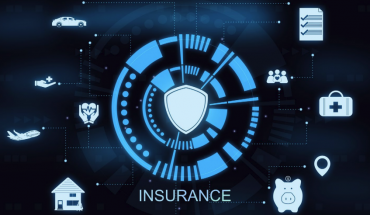By The Hon. Albert Isola MP, Minister for Digital and Financial Services, HM Government of Gibraltar
One of the greatest barriers to the effectiveness of blockchain regulation can sometimes be the perception that there is an unwillingness on the part of regulatory authorities and governments
to ensure that regulation is built around a sound understanding of the industry and its needs. Developing an understanding of the technology is a critical aspect of developing confidence in the framework that any government builds, however these frameworks are then firmly enforced by the regulator themselves, in effect, enforcing a policy that we set as a government.
In Gibraltar, we realised early on that in order to attract the best firms in the industry, we needed to have a comprehensive regulatory framework. However, input from the industry itself was crucial in creating a framework that was fit for purpose and served our key objectives. Our motivation to introduce the framework centred around the opportunities we believed would accrue to
the jurisdiction in attracting industry leaders to Gibraltar.
There are very few jurisdictions or bodies around the world that have developed an all-encompassing regulatory and legal framework for the Blockchain and Distributed Ledger Technology (DLT) industry. In particular, a set of rules that promote innovation whilst providing the required levels of risk management and oversight.
Initially there was reticence given major concerns around the safety and longevity of the industry. There followed a period in which the industry was considered too small, even insignificant, when compared with traditional financial services to be of concern. Views are evolving and developing and perhaps, some may say, a more responsible and proactive attitude is being displayed. Gibraltar introduced its framework on the first of January 2018, which in an industry that moves as quickly as crypto, is quite some time ago. More recently we have seen moves by, for example, the EU Commission, to introduce “EU-wide rules for blockchain to avoid legal and regulatory fragmentation”. The EU intends to achieve this through the Markets in Crypto- Assets Regulation (MiCA).
The European Central Bank
Interestingly, one element that is driving this base change in attitude is the opportunity of introducing sovereign digital currencies, a change that some see as moving from a remote possibility to an ambition. In October 2021 the US Federal Reserve announced plans to “review the potential benefits and risks of issuing a U.S. digital currency, as central banks around the world experiment with the potential new form of money.” The European Central Bank stated in June 2021, that it “and the European Commission services are jointly reviewing a broad range of policy, legal and technical questions relating to the possible introduction of a digital Euro. “ The digital yuan introduced by the Chinese government is reported by a senior Chinese Central Bank figure, as of October 2021, to have led to some “140 million people opening wallets” and “using them for transactions totalling around 62 billion yuan ($9.7 billion)”.
Resting on our laurels is not an option, we need to continue to develop our proposition across all the commercial areas that we are active in. The DLT regulatory framework will become 10 core principles adding the 10th which centres around regulating market integrity, which will again be the first of its kind for virtual asset service providers. It is incredibly important for us to keep at the cutting edge of regulation in this and other sectors and build upon the work we have carried out so far. I am also pleased that we announced in December 2021 a forward-thinking collaboration, alongside IOVLabs, the team behind the RSK blockchain and leading South American crypto exchange Bitso, who are licensed in Gibraltar. This collaboration will result in the Government of Gibraltar integrating blockchain technology into our legacy systems in order to streamline government processes. It is envisioned that the implementation, which will initially be rolled out on a pilot basis, will improve the delivery of public services to individuals and organisations residing or operating in Gibraltar.
eGov system
This proposed blockchain solution will enable citizens of Gibraltar to store government-issued and certified credentials on the blockchain, building upon our eGov system. Our government has developed a close working relationship with both Bitso and IOVLabs over time. Working hand in hand with the private sector has made this possible at this stage. The implementation of blockchain technology into our processes will further improve the way in which our community interacts with the government.
This integration represents the fact that the jurisdiction itself benefits from working with the private sector, highlighting innovation that spurs from collaboration. While we are pleased to have reached this point, we have not done it alone: it has been a partnership between the public and the private sector. We are delighted to have successfully positioned ourselves as a forward-thinking jurisdiction for innovative businesses developing and offering blockchain-related solutions.





